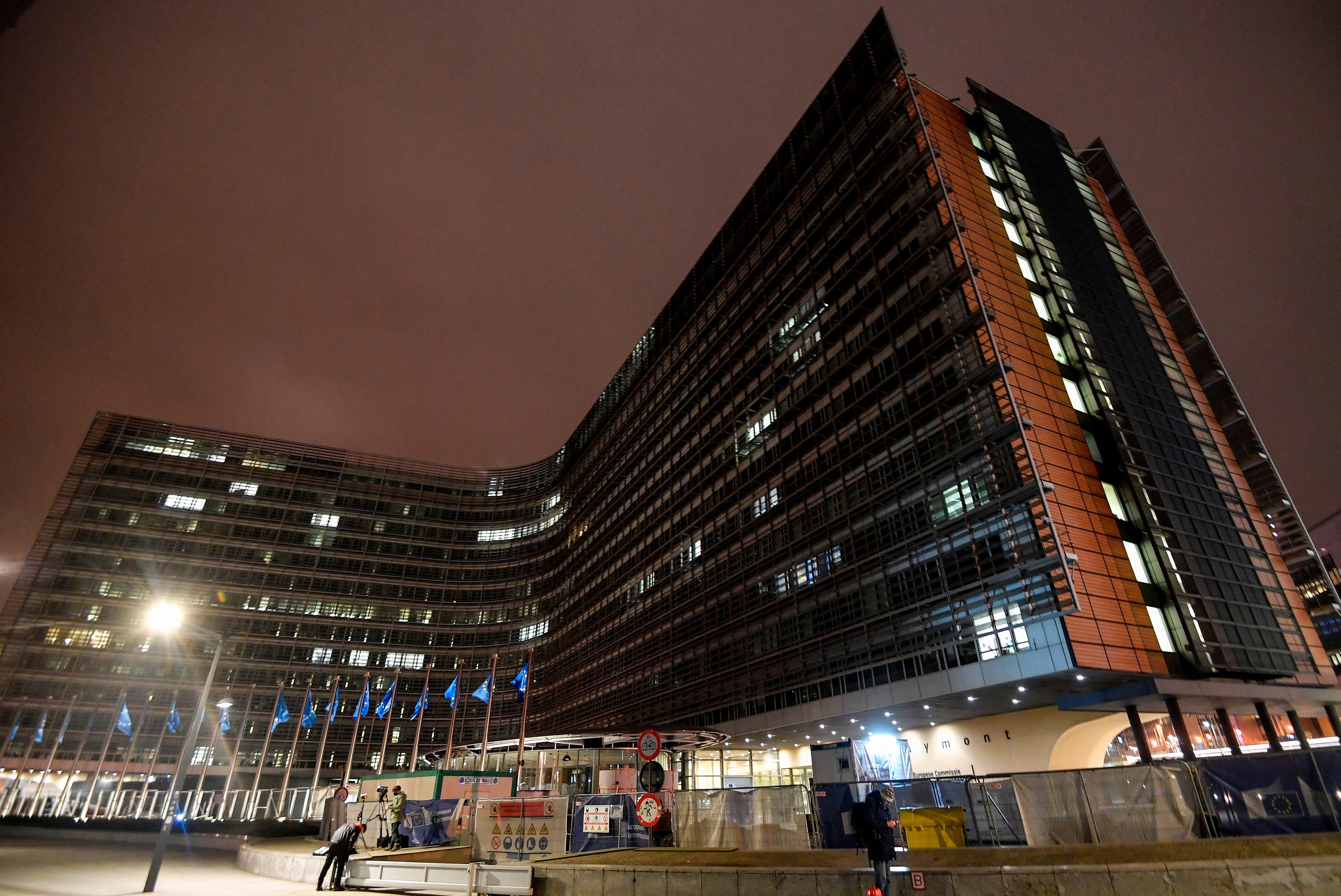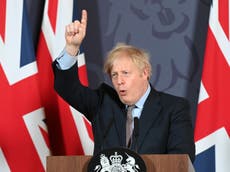EU capitals race to study 1,200-page Brexit treaty before formally calling off no-deal
Ambassadors from 27 countries dragged to meeting in Brussels on Christmas morning

Your support helps us to tell the story
From reproductive rights to climate change to Big Tech, The Independent is on the ground when the story is developing. Whether it's investigating the financials of Elon Musk's pro-Trump PAC or producing our latest documentary, 'The A Word', which shines a light on the American women fighting for reproductive rights, we know how important it is to parse out the facts from the messaging.
At such a critical moment in US history, we need reporters on the ground. Your donation allows us to keep sending journalists to speak to both sides of the story.
The Independent is trusted by Americans across the entire political spectrum. And unlike many other quality news outlets, we choose not to lock Americans out of our reporting and analysis with paywalls. We believe quality journalism should be available to everyone, paid for by those who can afford it.
Your support makes all the difference.EU member states are expected to approve the UK’s post-Brexit trade deal within days – bypassing the European Parliament in order to put the agreement into effect before Britain leaves the single market on Thursday.
Ambassadors from the 27 EU countries were dragged from their families on Christmas morning for their first look at the still-unpublished 1,200-page text, which was agreed with the UK on Thursday afternoon.
National governments are widely expected to bypass the European Parliament and put the agreement into effect on a provisional basis in the coming days, to avoid a no deal at the end of the year.
MEPs said a week ago that they would not have time to properly ratify the treaty before the end of the year, raising fears that it might be too late to avert a no deal.
The ambassadors did not formally give the green light for provisional approval at the meeting on Christmas morning, which officials described as an “information point”.
Instead, the 27 representatives sent a joint letter to the European Parliament telling MEPs that member states would take the decision on provisional ratification in the coming days.
The approach is partly so member states have time to read and understand the document, which was drawn up by the European Commission and British negotiators with only indirect input from national capitals.
But officials privately admit that they are also trying to avoid embarrassing the European Parliament, which is set to be bypassed yet again by the other EU institutions. At the start of her term European Commission president Ursula von der Leyen specifically promised that MEPs would be consulted before any trade deals were provisionally applied, a pledge that now looks set to be broken for the sake of avoiding a no-deal Brexit.
One official told The Independent that there was little chance in practice of member states forgoing provisional application of the deal, and that a no deal was now off the table.
One EU diplomat said: “EU Member states will now start a preliminary review of the draft texts of the different Brexit agreements.
“This exercise will take a few days as the core agreement on EU trade and cooperation already comprises 1,246 pages of legal text.”
The diplomat said the parliament would get a proper look at the final deal in the new year.
Another meeting of EU ambassadors has been provisionally penciled in for Monday 28 December, where provisional application could be formally approved.
The deal, struck at the last minute, saw Boris Johnson cave to EU demands on fishing access to avert a no deal.
While business leaders breathed a sigh of relief after the Christmas Eve announcement of a zero-tariff zero-quota free trade deal, fishermen voiced “frustration and anger” and accused the prime minister of “sacrificing” them to get a treaty.
Other details of the deal, such as the fact the UK will now be excluded from the Erasmus programme, also directly contradicted a promise made by the prime minister earlier this year.
Eurosceptic Tory MPs said they would study the deal carefully before deciding how to vote, but Labour immediately threw their weight behind the government and said they would support it. The text is yet to be published.

Join our commenting forum
Join thought-provoking conversations, follow other Independent readers and see their replies
Comments